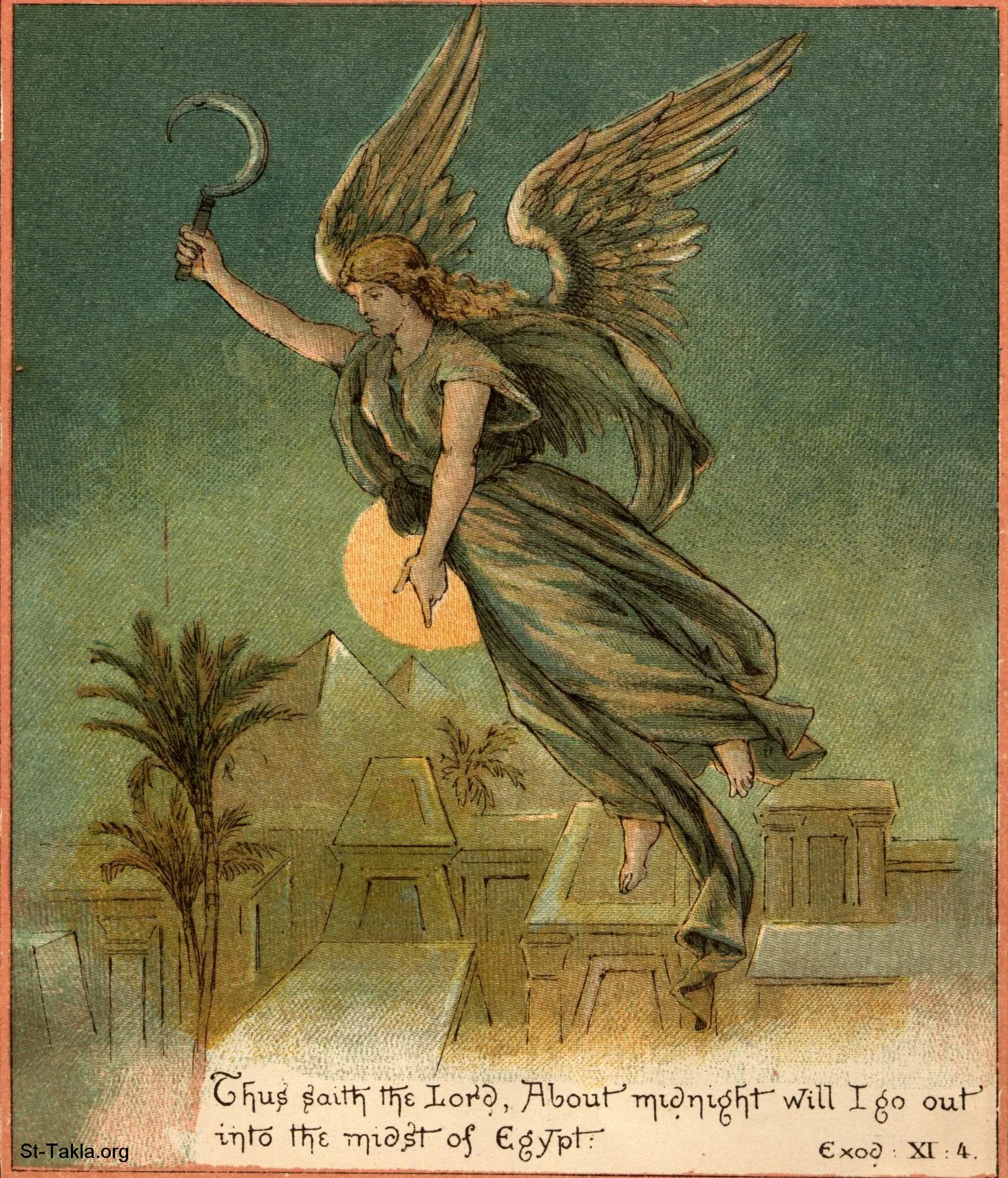Discovering the Significance of the Death Angel in the Bible: An Introduction to Christian Beliefs
The concept of the death angel is a fascinating and, at times, disturbing topic in the Bible. As a person interested in Christianity, you may have come across references to the death angel and wondered about its significance. In this article, we’ll provide an introduction to the death angel in the Bible, explore its role and references in biblical accounts, and delve into different interpretations and viewpoints about this biblical figure. By the end of this article, you’ll have a better understanding of the death angel and how it fits into Christian beliefs. So, let’s dive in together and explore the mysterious world of the death angel in the Bible!
An Introduction to the Concept of the Death Angel in the Bible.

The concept of the death angel in the Bible can be a difficult one to understand, but it is an important aspect of Christian theology. According to scripture, the death angel was sent by God to carry out his judgment on those who had sinned against him.
While this may seem like a harsh punishment, it is important to remember that God’s justice is always tempered with mercy. The death angel serves as a reminder that our choices have consequences and that we must strive for righteousness in all aspects of our lives.

As Christians, we are called to trust in God’s plan even when it involves difficult or painful experiences such as illness or loss. The story of the Passover in Exodus serves as an example of how obedience and faith can protect us from harm even when faced with seemingly insurmountable obstacles.
Ultimately, understanding the concept of the death angel helps us appreciate both God’s love and his justice. We should strive each day to live according to his will so that we may avoid judgment and instead experience eternal life through Christ Jesus our Lord.
Biblical accounts and references to the Angel of Death.
The death angel is a biblical figure that can evoke fear and uncertainty, but it is important to understand its significance in the context of Christianity. In the Old Testament, the death angel was sent by God to inflict punishment on Egypt by killing all their firstborn sons. However, those who followed God’s instructions and marked their doorposts with lamb’s blood were spared.
In the New Testament, there are references to angels of death or destruction such as in Revelation where four horsemen represented war, famine, pestilence and even spiritual demise. But it is also important to remember that angels often bring messages from God or serve as protectors.
As Christians we must be mindful not only of physical dangers but also spiritual ones which can lead us away from our faith. The Bible teaches us that we should always seek protection through prayer and our faith in Jesus Christ rather than relying solely on external means for safety.
It may seem scary or intimidating at first glance when reading about the death angel but it serves as a powerful reminder for believers about trusting in God’s protection during difficult times. As a youth pastor I encourage everyone to read more about this topic so you too can have an informed understanding of this aspect of Christian belief while growing your own personal relationship with Jesus Christ .
The role and significance of the death angel in biblical narratives.
The death angel, also known as the Angel of Death, is a significant figure in biblical narratives. This spiritual being is often mentioned in connection with divine punishment and judgment.
In the Old Testament, we see the death angel appearing during the final plague on Egypt. God sent this angel to strike down all first-born males in every household that did not have lamb’s blood on their doorposts. This event led to Pharaoh finally releasing Israelites from slavery.
In other parts of scripture, such as Psalm 91:11-12 and Exodus 23:20-21, we see the death angel taking on a protective role for those who are faithful to God. The Bible teaches us that this spiritual being serves as an agent of God’s will and can bring both life and death depending on what actions people take.
It’s important to note that while some may fear or even demonize this figure, Christians believe that ultimately it is only through Jesus Christ’s sacrifice for our sins that anyone can overcome ultimate physical death (Romans 6:23). Understanding how these stories fit into our larger faith narrative can help us better appreciate them without becoming overwhelmed by fear or superstition.

As we learn more about Christianity and its teachings around angels like the “death” one among others – let us remember these figures aren’t meant to scare but rather illuminate their respective roles within broader theological themes!
Different interpretations and viewpoints of the death angel.
The death angel is a complex and multifaceted figure in the Bible, with different interpretations and viewpoints among scholars and believers alike. As a youth pastor at a Christian church, I believe it’s important to explore these various perspectives to gain deeper insight into this mysterious figure.
One interpretation of the death angel comes from Exodus 12:23, where God commands Moses to mark the doors of Israelite homes with lamb’s blood so that “when [the Lord] sees the blood on the top and sides of your doorframe, he will pass over you.” Some see this as evidence that the death angel was an agent of God sent to carry out his judgments on those who did not have faith or follow his commandments.
Others interpret passages such as Psalm 91:10-11 differently; here, it says that “no harm will overtake you…for he will command his angels concerning you.” This suggests that rather than being an instrument of punishment or judgment, perhaps the death angel serves as a protector for those who trust in God.
Still others argue that there may be metaphorical meanings behind references to angels (including possibly ones related to physical phenomena like sickness or natural disasters), which means we should approach their descriptions with care when trying understand what they represent.
Regardless of one’s interpretation regarding what exactly is meant by “death angels,” though – whether literal agents carrying out divine retribution against unbelievers or something more symbolic – we can agree upon one thing: despite its fearsome reputation in scripture at times , human beings are ultimately held accountable for our own choices come judgement day.
Conclusion and reflection on the role of the Angel of Death in Christianity.
The concept of the “death angel” in Christianity is a complex and often misunderstood topic. In the Bible, this term refers to an entity that carries out God’s judgment and brings about death. However, it is important to note that this does not mean that God desires or delights in death.
Rather, the role of the death angel serves as a reminder of our mortality and our ultimate dependence on God for salvation. As Christians, we believe that Jesus Christ died on the cross to save us from eternal separation from God.
In light of this belief, we should not fear or dread the idea of facing our own mortality. Instead, we can find comfort in knowing that through faith in Jesus Christ, we have been given eternal life with Him.
As youth pastors at a Christian church, it is important for us to educate others about these concepts while also maintaining empathy towards their individual experiences with loss and grief.

Ultimately, reflecting on the role of the death angel can lead us towards deeper understanding and appreciation for both life and eternity with Christ.
Conclusion
As we have seen, the death angel plays a significant role in many aspects of Christianity. While interpretations and understandings may vary, its importance as an instrument of God’s will is undeniable. Whether it be through divine punishment or protection from harm, this powerful figure has been with us since the earliest days stories within Christian scripture. We hope that our exploration here has helped to provide insight into this important part of Christian doctrine and culture – now join us at church for further discussion on how to apply what we’ve learned!
















